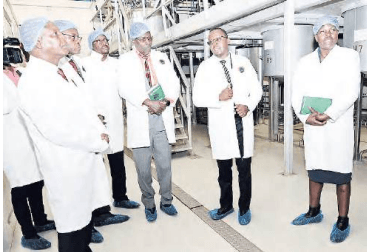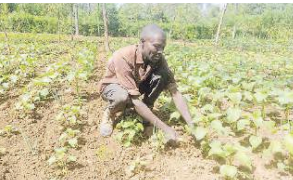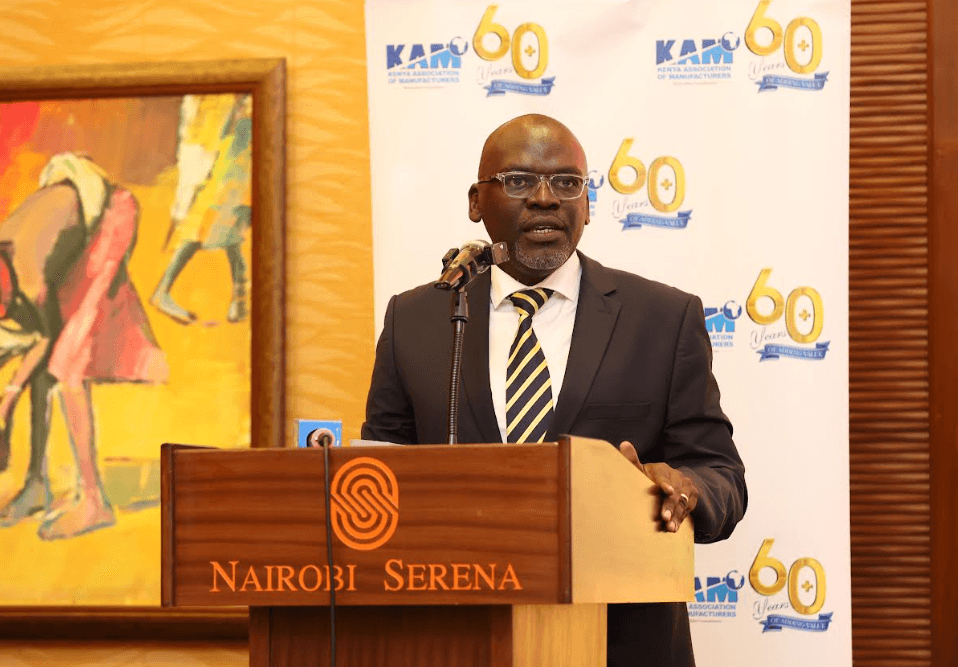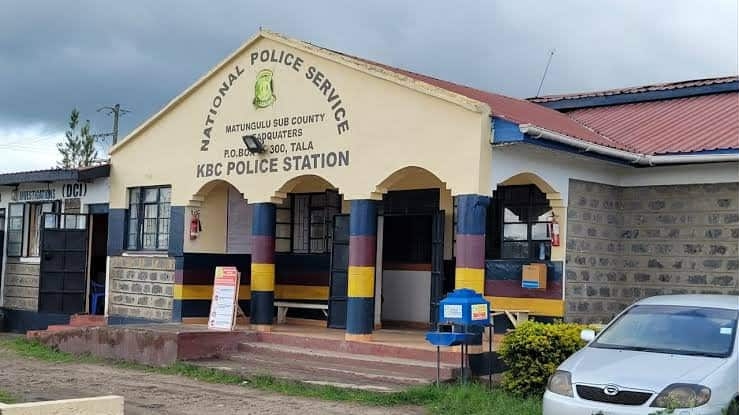

Farmers in Western region are laughing all the way to the bank, thanks to interventions that have enabled them to improve soil health and adopt sustainable farming practices.
In the heart of Kakamega county, Caroline Naliaka, a farmer from Shibembe in Butere subcounty, has transformed her farm using innovative techniques.
Initially dependent on maize cultivation, she faced unpredictable yields due to changing weather patterns.
To overcome this, Naliaka embraced crop rotation and diversified her farm by adding beans, sweet potatoes and leafy vegetables.
This ensures that if one crop fails, others thrive.
“During dry spells, water scarcity used to be a huge issue, but I’ve started using mulching and good agricultural practices to conserve moisture in the soil,” she says.
She plans to venture into dairy and poultry farming to expand her farm and diversify her income sources.
Boniface Oronje, another farmer from Butere subcounty, has transformed his farming practices with training from the Pro-Soil project in Western by Germany Agency for International Cooperation.
He adopted agroecological techniques, using compost manure to enrich his soil, resulting in increased yields and a steady food supply for his family.
“Since I started using compost manure, my yields have improved. I now have enough food, and I sell the surplus to the local community,” he said.
Flora Ajwera, an advisor with the Germany Agency for International Cooperation (GIZ), says that through the Pro-Soil project, over 2,000 farmers in Kakamega, Siaya, and Bungoma counties have been trained in sustainable soil management practices. More than 60 percent of these farmers are women.
“We teach farmers how to enrich the soil using organic farming techniques, which are cost-effective and contribute to climate change mitigation,” Ajwera explains.
The project focuses on improving soil health through sustainable land management practices that apply agroecological methods.
These practices are designed to adapt to climate change while making use of locally available resources.
Ajwera notes that soils in Western Kenya are often degraded, exhibiting high acidity and low plant nutrients, which makes them less suitable for farming.
"Yet, farmers in this region rely on their farms for their livelihood," she says.
To help farmers improve soil health, the project conducts soil tests, allowing farmers to understand the condition of their soil and determine the necessary corrective measures.
Based on the soil test results, farmers decide how to rehabilitate their soils to make them healthier and more productive.
“We also provide training on soil erosion control, such as creating terraces or planting multipurpose grasses like Napier and Brachiaria,” Ajwera adds.
Additionally, the terraces are reinforced with agroforestry trees or fruit trees, which provide nutritional benefits and income opportunities.
In addressing soil acidity, Ajwera explains that, based on soil test recommendations, farmers can apply lime or create organic fertilizers using locally available materials.
This not only addresses acidity but also improves soil structure, water infiltration, and erosion control.
The project also promotes conservation agriculture, emphasizing the importance of keeping soil covered and minimizing disturbance. Farmers are encouraged to plant diverse crops and rotate them to ensure food security, particularly in the face of climate change.
“By growing different crops, even if one fails, the farmer is assured of food security,” Ajwera says.
Agroforestry is another key component of the project, she says, as trees serve as carbon sinks, provide fodder for livestock, and contribute to a balanced ecosystem by supporting beneficial organisms like bees and birds.
“Furthermore, farmers are trained in integrated pest and disease management, utilizing a variety of natural solutions. The small land parcels in the region require careful planning to ensure that each farm enterprise can coexist harmoniously,” says Ajwera.
“The Pro-Soil project also promotes push-pull technology developed by ICIPE, which helps manage striga weed, improves nitrogen fixation, and controls stalk borers,” she adds.
Godfrey Owuor, Kakamega CEC for Agriculture, points out that decreasing agricultural production has led to insufficient food for the growing population.
"Addressing soil health is crucial to meet the increasing demand for food," he says.
He explains that the Pro-Soil policy, under the GIZ project, is designed to guide farmers on cost-effective and sustainable ways to enrich depleted soils using locally available organic materials.
“As a county government, we’ve partnered with Amukura Agricultural Training College to integrate the Pro-Soil curriculum, training young people in modern farming techniques. We are also working with local primary schools to ensure the next generation is equipped with these essential skills,” Owuor says.
By focusing on soil health and sustainable farming, the CEC notes that farmers in Western Kenya are not only increasing their yields but also securing their future in the face of climate change.

















